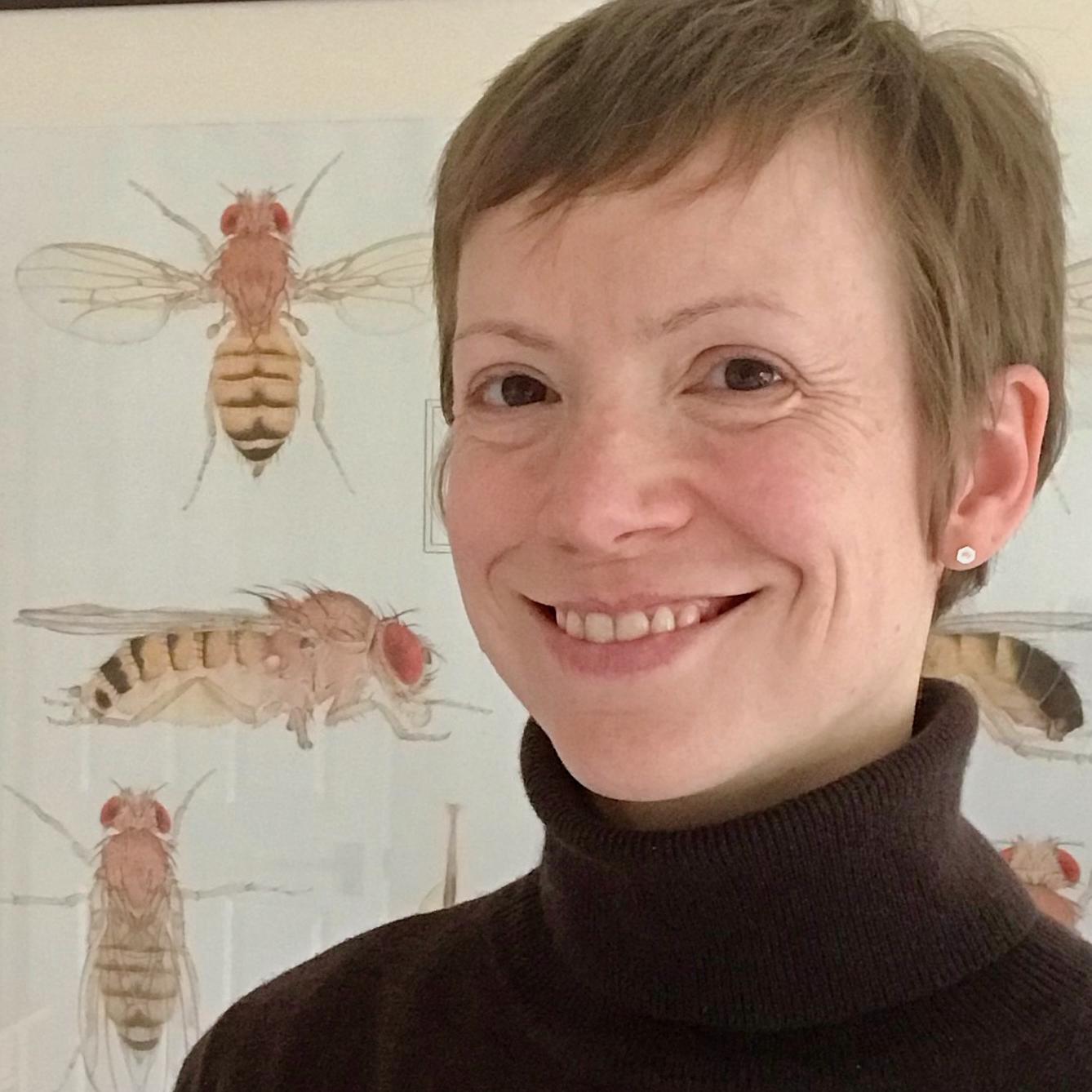Staff profile

| Affiliation |
|---|
| Associate Professor in the Department of Biosciences |
Biography
Research Interests
My research focuses on intestinal function in health and disease.
The intestine is a complex organ that balances competing demands. The epithelium acts as a barrier against the external environment but must also absorb appropriate nutrients. It must defend against pathogens while supporting a diverse microbial population that is beneficial for health. It undergoes rapid cell turnover and must integrate new cells and shed old ones without compromising barrier function. In my lab, we use the powerful genetic tools available in the Drosophila model to understand how the intestinal epithelium balances these competing demands and what happens when things go wrong.
We currently focus our efforts on answering two questions:
- What cellular and molecular mechanisms underlie loss of intestinal barrier function during illness, disease, and old age?
- What is the relationship between intestinal homeostasis, nutrition, and the regulation of nutrient uptake?
This research has the potential to break new ground in our understanding of intestinal homeostasis as a cornerstone of health.
Research interests
- My research focuses on intestinal function in health and disease.
- The intestine is a complex organ that balances competing demands. The epithelium acts as a barrier against the external environment but must also absorb appropriate nutrients. It must defend against pathogens while supporting a diverse microbial population that is beneficial for health. It undergoes rapid cell turnover and must integrate new cells and shed old ones without compromising barrier function. In my lab, we use the powerful genetic tools available in the Drosophila model to understand how the intestinal epithelium balances these competing demands and what happens when things go wrong.
- We currently focus our efforts on answering two questions:
- 1) What cellular and molecular mechanisms underlie loss of intestinal barrier function during illness, disease, and old age?
- 2) What is the relationship between intestinal homeostasis, nutrition, and the regulation of nutrient uptake?
- This research has the potential to break new ground in our understanding of intestinal homeostasis as a cornerstone of health.
Publications
Journal Article
- Rapamycin modulates tissue aging and lifespan independently of the gut microbiota in DrosophilaSchinaman, J. M., Rana, A., Ja, W. W., Clark, R. I., & Walker, D. W. (2019). Rapamycin modulates tissue aging and lifespan independently of the gut microbiota in Drosophila. Scientific Reports, 9(1), Article 7824. https://doi.org/10.1038/s41598-019-44106-5
- Intestinal Snakeskin Limits Microbial Dysbiosis During Aging and Promotes LongevitySalazar, A. M., Resnik-Docampo, M., Ulgherait, M., Clark, R. I., Shirazu-Hiza, M., Jones, D. L., & Walker, D. W. (2018). Intestinal Snakeskin Limits Microbial Dysbiosis During Aging and Promotes Longevity. IScience, 9, 229-243. https://doi.org/10.1016/j.isci.2018.10.022
- Tricellular junctions regulate intestinal stem cell behaviour to maintain homeostasisResnik-Docampo, M., Koehler, C. L., Clark, R. I., Schinaman, J. M., Sauer, V., Wong, D. M., Lewis, S., D’Alterio, C., Walker, D. W., & Jones, D. L. (2016). Tricellular junctions regulate intestinal stem cell behaviour to maintain homeostasis. Nature Cell Biology, 19(1), 52-59. https://doi.org/10.1038/ncb3454
- Distinct shifts in microbiota composition during Drosophila aging impair intestinal function and drive mortalityClark, R., Salazar, A., Yamada, R., Fitz-Gibbon, S., Morselli, M., Alcaraz, J., Rana, A., Rera, M., Pellegrini, M., Ja, W., & Walker, D. (2015). Distinct shifts in microbiota composition during Drosophila aging impair intestinal function and drive mortality. Cell Reports, 12(10), 1656-1667. https://doi.org/10.1016/j.celrep.2015.08.004
- Comparative genomics of the mimicry switch in Papilio dardanusTimmermans, M., Baxter, S., Clark, R., Heckel, D., Vogel, H., Collins, S., Papanicolaou, A., Fukova, I., Joron, M., Thompson, M., Jiggins, C., ffrench-Constant, R., & Vogler, A. (2014). Comparative genomics of the mimicry switch in Papilio dardanus. Proceedings of the Royal Society B: Biological Sciences, 281(1787). https://doi.org/10.1098/rspb.2014.0465
- Metabolic and immune integration in aging and age-related diseaseClark, R., Walker, D., & Dionne, M. (2014). Metabolic and immune integration in aging and age-related disease. Aging, 6(1), 3-4. https://doi.org/10.18632/aging.100626
- MEF2 is an in vivo immune-metabolic switchClark, R., Tan, S., Pean, C., Roostalu, U., Vivancos, V., Bronda, K., Pilatova, M., Fu, J., Walker, D., Berdeaux, R., Geissmann, F., & Dionne, M. (2013). MEF2 is an in vivo immune-metabolic switch. Cell, 155(2), 435-447. https://doi.org/10.1016/j.cell.2013.09.007
- Why do old flies die?Rera, M., Clark, R., & Walker, D. (2013). Why do old flies die?. Aging, 5(8), 586-587. https://doi.org/10.18632/aging.100589
- Intestinal barrier dysfunction links metabolic and inflammatory markers of aging to death in Drosophila.Rera, M., Clark, R., & Walker, D. (2012). Intestinal barrier dysfunction links metabolic and inflammatory markers of aging to death in Drosophila. Proceedings of the National Academy of Sciences, 109(52), 21528-21533. https://doi.org/10.1073/pnas.1215849110
- Multiple TGF-β superfamily signals modulate the adult Drosophila immune responseClark, R., Woodcock, K., Geissmann, F., Trouillet, C., & Dionne, M. (2011). Multiple TGF-β superfamily signals modulate the adult Drosophila immune response. Current Biology, 21(19), 1672-1677. https://doi.org/10.1016/j.cub.2011.08.048

